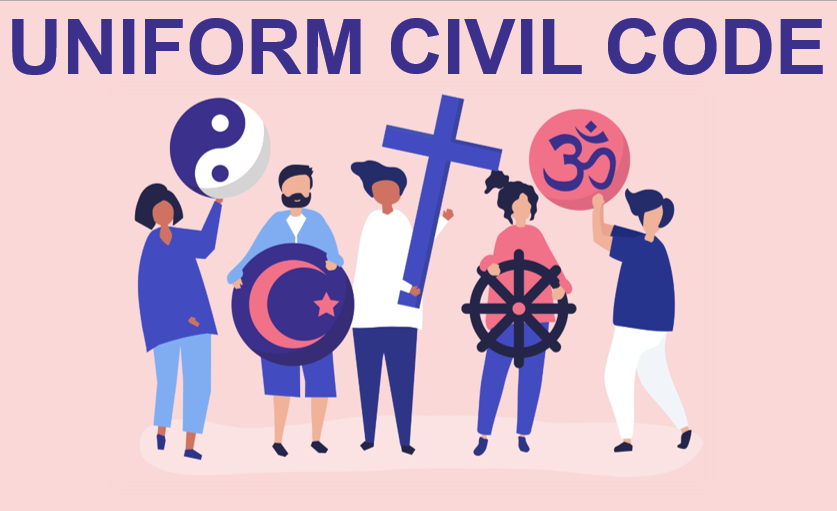Published On: October 13th 2025
Authored By: Vaitheeshwari M
Chennai Dr Ambedkar Government Law College Pudupakkam Ko
Abstract
The rights of women in matrimonial and property disputes have emerged as central elements in the pursuit of gender equality and justice within family law. Historically marginalized within matrimonial frameworks, women have long faced significant challenges in securing autonomy over property, access to maintenance, and protection in the event of marital discord or dissolution. Contemporary legal systems particularly in India now provide a more robust structure safeguarding women’s interests in marriage, separation, and divorce. Laws such as the Hindu Marriage Act, 1955, and the Protection of Women from Domestic Violence Act, 2005 emphasize women’s entitlement to maintenance, residence, protection from cruelty, and a share in marital property. Despite substantial legal advances, impediments remain due to social norms, fragmented personal law regimes, and enforcement challenges. As women continue to navigate matrimonial disputes, the strengthening and effective enforcement of property and personal rights remains a cornerstone for broader social empowerment.
Keywords: rights of women, Hindu marriage act
Introduction
Matrimony and property disputes often expose women to vulnerabilities, making the recognition and enforcement of their rights essential for achieving substantive gender justice. In India, multiple legal instruments govern the rights of women in marriage and property matters, encompassing both religious personal laws and secular statutes. Key rights include maintenance, the right of residence, stridhan (women’s property), protection from domestic violence, and custody of children. These provisions aim to shield women from destitution and exploitation while enabling them to assert legal claims regardless of marital status. Recent judicial pronouncements and legislative reforms reflect a growing awareness of women’s unique position within the family and society, emphasizing equitable distribution of assets and safeguarding personal dignity. Nevertheless, women often struggle against social stigma, procedural delays, and incomplete legal remedies, underlining the necessity for ongoing reform, awareness, and robust implementation of laws governing matrimonial and property disputes.
Right to Residence
[1] Particularly in India, focus on Section 17 of the Protection of Women from Domestic Violence Act, 2005 (PWDVA), which grants every woman in a domestic relationship the right to reside in the “shared household” and prohibits her eviction except by due legal process.
Right to property
The right to private property was regarded as a fundamental right in India under article 31 of the Indian Constitution until 1978. However, after the 44th Constitution Amendment in 1978, the right to property became a constitutional right rather than a fundamental right under article 300 (a) of the constitution. Nonetheless, Article 300 A of the Indian Constitution states that “no person shall be deprived of his private property except by authority of law.”
[2] Right to Private Property
The right to private property refers to the legal and moral entitlement of individuals to own, use, and dispose of property, whether it is land, buildings, or other tangible assets. It is a fundamental human right that allows individuals to have exclusive control over their possessions and use them for their own benefit.
History of Right to Private Property
Before 1978, the right to property was considered a fundamental right. It provided individuals with strong protection against interference or deprivation by the state.As per the 44th Constitution Amendment in 1978, the right to property ceased to be a fundamental right. However, it continued to be recognized as a constitutional right.Article 300A of the Constitution of India states that no person shall be deprived of their property except by the authority of law.The right to private property is protected under Article 19(1)(f) of the Constitution. It guarantees the right to acquire, hold, and dispose of property.
The Supreme Court of India has affirmed that the right to private property is a human right. The state cannot dispossess a person of their property without following due process of law.
[3]State of West Bengal vs. Mrs. Bela Banerjee and Others
The Supreme Court held that “compensation” under Article 31(2) must mean a just equivalent of what the owner has been deprived of, not an arbitrary or illusory amount.The Court ruled that principles set out by the Legislature for compensation must ensure “full indemnification” for the owner. Any law that fixes compensation in a way that it becomes illusory or grossly inadequate essentially amounts to a fraud on powers given by the Constitution.
The clause fixing compensation at the market value as of December 31, 1946 and giving the government the sole power to declare public purpose were declared unconstitutional and void.
Right against dowry harassment
Dowry is a part of cultural practice in many parts of the country, where the bride’s family gives many valuable things as gifts. It is often seen as a financial security for a bride. Unfortunately, this tradition has made a curse for society that leads to several illegal practices. “Dowry Harassment” is one of them. The NCRB study states that there were 6753 registered cases of dowry death in 2021 and it has been increasing yearly.
However, dowry harassment occurs when the groom or his family demands more money, assets or valuable things after the marriage. It is a non-bailable offense where women are harassed for the greed of dowry. In this article, we will get a comprehensive understanding of Dowry Harassment, its legal framework, case procedure, and punishment for this offense. We will also understand why legal action is a must.
[4]Dowry: According to Section 2 of the Dowry Prohibition Act, 1961 Dowry is defined as – any property or valuable security given or agreed to be given either directly or indirectly—
By one party to a marriage to the other party to the marriage; or
By the parents of either party to a marriage or by any other person, to either party to the marriage or to any other person; at or before [or any time after the marriage] [in connection with the marriage of the said parties, but does not include] dower or mahr in the case of persons to whom the Muslim Personal Law (Shariat) applies.
In simple terms “Dowry” describes the traditional practice in different societies of transferring wealth or assets from the bride’s family to the groom’s family. Dowry practices which initially aimed to give the bride financial stability, have developed into a system of exploitation and obsession. The practice of dowry remains a significant social issue, perpetuating gender-based violence and discrimination.
Dowry Death:
A Dowry Death means the death of a woman due to a suicidal or murderous act practiced by the husband or members of the family where the woman is married, especially in relation to dowry. Gendered crimes against women are categorized under Section 304(B) of the I.P.C, and it refers to cases where a woman loses her life under what can be considered as “live-out” circumstances like poisoning, burning, hanging, or grievous physical abuse. These deaths are assumed to be due to dowry-related abuse or torture.To file a complaint under section Section 304(B) of the I.P.C , the following conditions must be fulfilled:The woman probably suffered cruelty or harassment from her husband or his side of the family.Harassment or cruelty should have been done to her before she died.The cruelty or harassment has to be in relation to dowry demands.The death must occur at least seven years after the marriage began.
Legal Framework & Punishment:
The legal framework for Dowry Harassment and dowry death is included under the “Dowry Prohibition Act of 1961”. Giving or receiving a dowry is illegal under this act, and offenders incur serious consequences. Related provisions are 498(A) of IPC for “Cruelty”, and Section 113(B) of the Indian Evidence Act.
Punishment for dowry harassment under the Dowry Prohibition Act, 1961
Section 3: The person who takes or gives dowry will be entitled to imprisonment for at least 5 years with or without a fine. Section 4: The person who even demands the dowry will be entitled to imprisonment from 6 months to 5 years with or without a fine.
Section 8: Section 8 of the dowry act makes this a cognizable and non-bailable offense.
Punishment for dowry harassment under the Indian Penal Code, 1980
Section 304 (b) 3: The person who will be held responsible for the death of the woman supposedly for the purpose of dowry will be entitled to imprisonment from 7 years to a lifetime.
Section 498 (a)The person who will be held responsible for the harassment and cruelty to the woman will be entitled to imprisonment for up to 3 years or a fine.
[5]Right to Divorce
Women have the right to initiate divorce proceedings under various personal and statutory laws in India. Depending on the grounds, a woman can file for divorce if she faces cruelty, desertion, adultery, impotence, or any other legally acceptable reason.
[6]Grounds for divorce :
1.Adultery:
Adultery had been defined under Section 13(1)(i) of the Hindu Marriage Act 1955.
Adultery means voluntary sexual intercourse between a married individual and someone of the opposite sex who is not their spouse, whether the other person is married or unmarried.
In a polygamous marriage, relations with the previous or subsequent wife are not considered adultery.However, if the second marriage is invalid, sexual relations with the second wife are deemed adulterous.Earlier, divorce could only be granted if a spouse was continuously living in adultery, but the Marriage Laws Amendment Act of 1976 revised this allows divorce based on a single act of adultery.Marriage should be valid so as to consider Adultery as an offence.
Adultery cannot happen without the consenting participation of one party.
2.Cruelty:
Cruelty includes both mental and physical abuse.
Such acts are behavioral manifestations influenced by different factors in the lives of spouses and their environments, necessitating a case-by-case assessment based on specific details.Physical cruelty is generally more straightforward to recognize, while defining mental cruelty is more complex.
3.Desertion:
Section 10(ib) of the Hindu Marriage Act 1955 defines desertion.
The respondent must abruptly and without reasonable cause, stop living with the petitioner and abandon all marital rights, obligations, and duties, demonstrating a clear intention to leave the marriage will be considered as desertion.Mere absence from the home, with ongoing communication through emails or phone calls, does not qualify as desertion.Divorce may be granted if the petitioner has been deserted by the respondent for a continuous period of two years immediately prior to filing the petition.
4.Conversion:
It is defined under Section 13(1)(ii) of the Hindu Marriage Act 1955.
If any of the spouses converts his religion to another religion without the consent of the other spouse, then the other spouse can approach the court and seek the remedy of divorce.
5.Insanity:
Insanity had been defined under Section 13(1)(iii) of the Hindu Marriage Act 1955.
The term “insanity” originates from the word “insane,” which refers to a state of mind that is not sound or rational.Consequently, an individual who cannot distinguish between right and wrong or who lacks the ability to give informed consent or make decisions about their surroundings is not deemed capable of entering into a marital relationship.
It is unreasonable to expect the petitioner to continue living with the respondent.
6.Venereal Illness:
Venereal disease, commonly referred to as a sexually transmitted disease (STD),
It can be grounds for divorce under Section 13(1)(v) of the Hindu Marriage Act 1955.
If a spouse is suffering from a severe and incurable disease that is highly contagious, the other spouse may file for divorce.
7.Renunciation:
A divorce can be filed under Section 13(1)(vi) of the Hindu Marriage Act 1955, if one spouse renounces all worldly affairs by embracing religion or another belief system.
This individual reaches a state of self-actualization, as described by Maslow, and seeks to free themselves from all worldly bonds, including marriage.
When a person no longer wishes to uphold the responsibilities of marriage, relationships, and family, this can serve as a fundamental reason for seeking a divorce.
8.Presumption of Death:
Under Section 13(1)(vii), of the Hindu Marriage Act 1955 is a ground of divorce.
An individual is assumed to be deceased if their family or friends receive no information about them being alive or dead for a period of seven years or more.
This is recognized as a legitimate reason for divorce, but the responsibility to provide evidence falls on the person seeking the divorce.
Hindu Marriage Act, 1955:
Women can file for divorce on grounds such as cruelty, adultery, desertion, and more. Special grounds for women include the husband’s second marriage, husband’s rape, sodomy, or bestiality.
Special Marriage Act, 1954:
This act applies to inter-religious marriages. Women have similar rights as under the Hindu Marriage Act to file for divorce.
Dissolution of Muslim Marriages Act, 1939:
Muslim women can seek divorce on various grounds, including cruelty, failure to provide maintenance, and the husband’s impotence or disappearance.
Supreme Court Can Grant Divorce Under Article 142
Section 13B of the Hindu Marriage Act, 1955 (HMA), lays down the procedure for divorce by mutual consent of both parties. This includes a cooling period of 6-18 months after making a joint application for divorce. If the application is not withdrawn during this period, the concerned court will continue proceedings and grant divorce. The Bench held that under Article 142 the SC is not bound by these procedural requirements and can grant the decree before such a period, even when the main case is pending before a Family Court. Further, the SC can also grant divorce on the ground of ‘irretrievable breakdown’ in the interest of justice even if one party opposes it.
The Bench was of the view that the cooling-off period is an impediment in instances where there is an ‘irretrievable breakdown of marriage’ i.e. where divorce is inevitable. However, they emphasised that the time gap is necessary as it allows the parties to evaluate and reconsider their decision to divorce. The period can only be waived when the Court finds that the marriage is beyond repair.
Some factors to be considered before determining whether a marriage is irretrievably broken down are:
[7]Property Ownership and Matrimonial Property
Women in India have the right to own and manage property independently, offering them financial security and autonomy. Upon divorce or separation, the division of matrimonial property is guided by personal laws, which vary among religions. For instance, under Hindu law, both spouses are entitled to a fair share, while Muslim and Christian laws have different provisions. The legal framework also protects against domestic violence, ensuring women’s right on the father’s property and the right to remain in the matrimonial home and retain property. These protections are vital in safeguarding women from property disputes and enhancing their economic independence, reinforcing the broader goals of gender equality and empowerment in India
Conclusion
The rights of women in matrimonial and property disputes reflect the evolving trajectory of family law in India, where the balance between tradition and modernity continues to shape judicial and legislative approaches. Although significant progress has been made through landmark legislations such as the Hindu Marriage Act, 1955, the Dowry Prohibition Act, 1961, and the Protection of Women from Domestic Violence Act, 2005, women still face hurdles in realizing their rights due to societal pressures, lack of awareness, and procedural complexities. Strengthening enforcement mechanisms, ensuring speedy judicial remedies, and harmonizing personal laws with constitutional guarantees are critical to achieving true gender justice. Ultimately, empowering women with enforceable matrimonial and property rights not only ensures fairness within families but also fosters social equity and contributes to the broader goals of constitutional democracy.
References
[1] 202503221779269716.pdf https://share.google/MLabCzixssvC3dfsw
[2] https://blog.ipleaders.in/right-to-property-as-a-fundamental-right/
[3] The State Of West Bengal vs Mrs. Bela Banerjee And Others on 11 December, 1953 https://share.google/SqrbL5jnigKhoSvxX
[4] https://litem.in/dowry-harassment.php
[5] https://www.legalkart.com/legal-blog/
[6] What are the Grounds of Divorce under the Hindu Marriage Act, 1955 https://share.google/WbwzOpJoSNpJ6KGsr
[7] Legal Rights of Women in Matrimonial Disputes – advocate https://share.google/Ly8MJMKHbswK0p0z2




